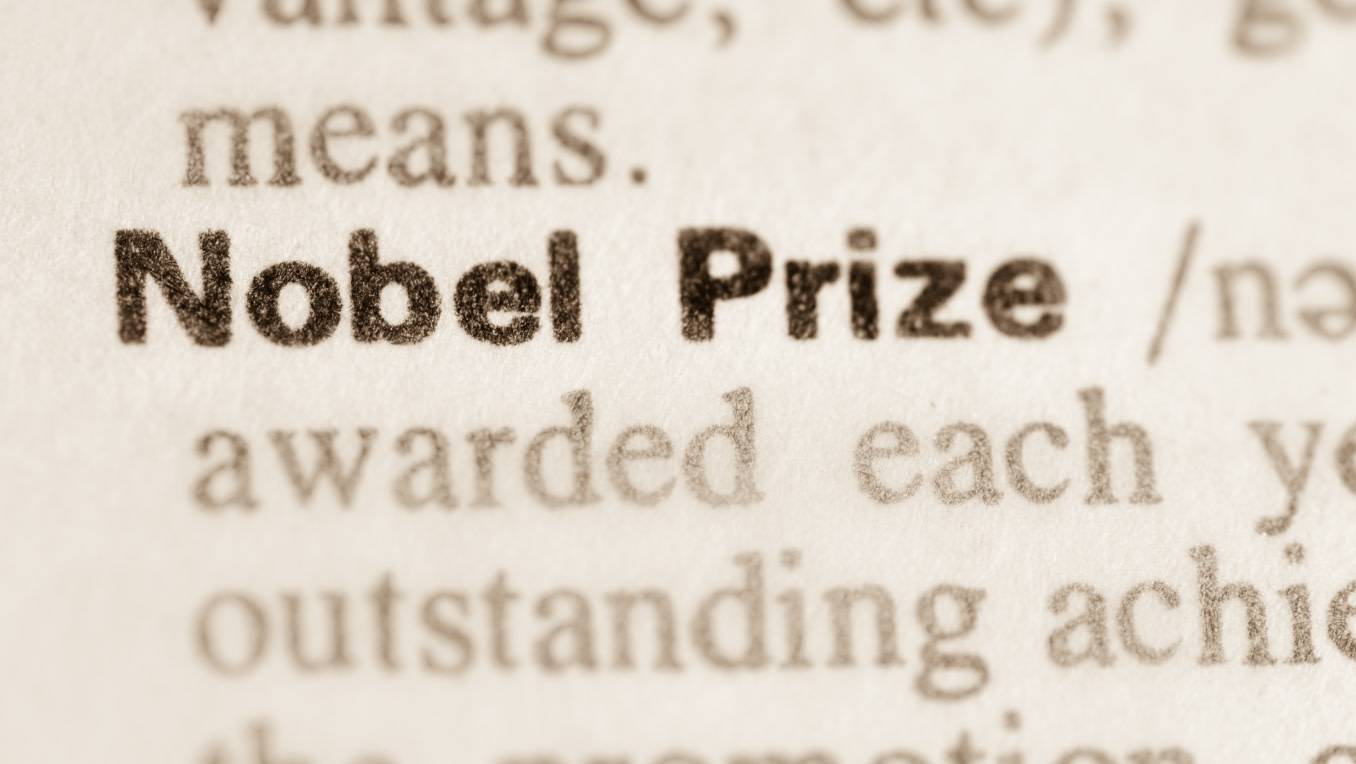Who’s taking home the world’s heavyweight literary prize this year? We weigh in with our thoughts
You always know when a Hollywood awards season is around the corner. Twitter is abuzz. Endless Facebook polls fill your feed. You might even be invited to attend a black-tie party to watch the ceremony as the big winners accept their prizes.
While the Nobel Prize ceremony might not attract as much attention as the Oscars or Golden Globes, every year the Nobel Committee continues to recognize and celebrate the scientists, artists and thinkers who quietly change the world. It’s an annual red-letter day in world culture — even without the red carpet.
Everyone loves awards and award winners. But no prize matches the prestige of being a Nobel Laureate.
These awards have been handed out for nearly 12 decades in six categories including physics, chemistry, physiology or medicine, peace and literature — and the Nobel Prize is widely regarded as the most prestigious award one can receive in these fields.
In the field of literature, where winners boast an incredibly wide and influential body of work, the Nobel Prize overshadows even the prominent Pulitzer Prize. With the winners for 2020 being announced in October, we thought we’d spotlight some of our favourite winners from past years and cast our predictions for who might take the prize home this year. Each title on this list can be found in Audible’s impressive library of over nearly a half million audiobooks and can start you down a very well-appointed list of literary listens.
Three of Our Favourite Winners of the Last 30 Years
Toni Morrison Wows the World in 1993
Renowned for her unique explorations of race, history, tragedy and memory, Toni Morrison was awarded the prize for a long and varied career as a novelist. Praised by the Nobel Committee for a lifetime of work that carried “visionary force and poetic import, giving life to an essential aspect of American reality," Morrison was known for tightly-wrought novels that celebrated Black history even as they examined its tragedies.
If you’ve always wanted to enjoy her work, we know just where to start. Widely regarded as her magnum opus, Beloved is expertly woven and cohesive, while still maintaining nuance. Her tone is grounded and stark even as the more surreal and horrific elements of the novel reveal themselves.
Poetic, graphic, evocative and tautly suspenseful, this listen will leave you gawking at Morrison’s ability to weave the unassailable truth of history and the tragic interconnectedness of slavery, war and family.
Canadian Alice Munro Changes the Awards Game in 2013
Canada is a country of prolific thinkers and creators, and we proudly boast 27 winners, including Frederick Banting for the invention of insulin in 1923 and Prime Minister Lester B. Pearson for his political efforts in 1957.
But in 2013, Munro made headlines for being the first Nobel Prize in Literature winner in its more than 100-year history to work exclusively in the medium of short stories. In honour of her work, the Prize Committee called her a “master of the contemporary short story” and celebrated her “almost anthropological precision” in describing the realities of everyday life.
In her landmark collection, Runaway, Munro presents a series of stories about the surprises and betrayals that accompany love, and the ways in which everyday people cope with these uncertainties.
Her prose has always been marked with a keen sensitivity to the unpredictable, changeable nature of Canadian life, and her stories are often so real and feel so lived-in that you begin to see her characters and settings everywhere in your own day-to-day life.
It’s easy to see the lives and struggles of her protagonists — women of all circumstances and ages — reflected in our own friends, family, neighbours and colleagues.
Take a look at this title to see how easy it is to get lost in Munro’s effortless and evocative short stories, and why she won in 2013.
Kazuo Ishiguro Wins Big in 2017
Kazuo Ishiguro “who, in novels of great emotional force, has uncovered the abyss beneath our illusory sense of connection with the world” brought home the prize in 2017 to nobody’s surprise. His life’s work is a tapestry of tightly-woven parables and vibrant explorations of the constant lover’s quarrel between the individual and society, and the ultimate unknowability of the self.
Want proof? Look no further than Never Let Me Go, a moving work of speculative fiction that refuses to let listeners loose from its grasp.
A story equal parts dystopian, tragic, mysterious and yet unavoidable, it’s a fascinating exploration of the lengths we will go to in order to function and even thrive in a world where scientific advances have outpaced ethical ones.
This is just one of many Ishiguro works that walk a tightrope between the real and the speculative, the absolute and the audacious, proving why he was 2017’s big winner.
Those are some highlights of years gone by, but we’re always eager to look to the future to see which Nobel contenders have the best shot at winning in 2020. Here in no particular order are three authors we’d love to see take home the prize this fall.

Who Will Win the Nobel Prize for Literature in 2020?
Canadian Poet and Essayist Anne Carson
In any discussion about the Nobel Prize in Literature, those in the know will tell you that Anne Carson’s name comes up as a likely contender for the prize year after year.
She is a major voice and key figure in contemporary poetry (an often-overlooked literary form) and her work is as intellectually invigorating as it is beautiful.
Consider her most well-known title, Autobiography of Red, which borrows heavily from Greek myth to challenge the listener’s notions of what makes an artist, what makes a monster and how we can’t write new stories without confronting the myths that define us.
American Novelist Joyce Carol Oates
For those who enjoy fiction, it’s impossible to discuss the Nobel Prize without mentioning Joyce Carol Oates.
With over 50 novels, numerous short story collections, several plays and even a memoir, this 81-year old literary legend has earned a high status in the publishing world. The Nobel Prize in Literature would be a final crowning achievement in a long life of letters.
If you’re unfamiliar with her work, Night. Sleep. Death. The Stars. is a fantastic starting point.
An unforeseen death pushes an American family to unexpected paths of grief in this tense examination of family ties and the ways they can come undone in the face of tragedy. Oates has always been an expert at shining a light on the darker side of humanity with her work, but this novel of grief and eventual healing is a true standout in this prolific writer’s catalogue.
Kenyan Writer and Academic Ngũgĩ wa Thiong’o
The Nobel Prize has started to embrace global literature more in the last 20 years than in the past, and Ngũgĩ has been on critics’ shortlists to win for quite a while. A world-renowned writer, scholar and social activist, his novels, short stories, plays, essays and poetry have been translated into over 60 languages.
His writing attempts to fill gaps and silences that exist between listeners of diverse races and backgrounds resulting in a body of work that is incredibly global in its perspective. For instance, everyone who listens to his novel Dreams in a Time of War will have a different experience, but no one can walk away from it without a feeling of shared empathy and discovery. By carefully examining how events like rebellion and the fight for independence invariably shaped the lives of all Kenyans, he shows how everyone can tap into their country’s awakening — regardless of which country you actually come from.
What do you think about our list of potential Nobel Prize winners? Peruse our list of the most popular titles on Audible.ca — maybe you’ll find someone you think we missed. If you do, you can share your nominees with us on Facebook today.
We’re avid fans of all things literary here at the Audible.ca blog and we hope you check in regularly to see what we’ll be discussing next.









